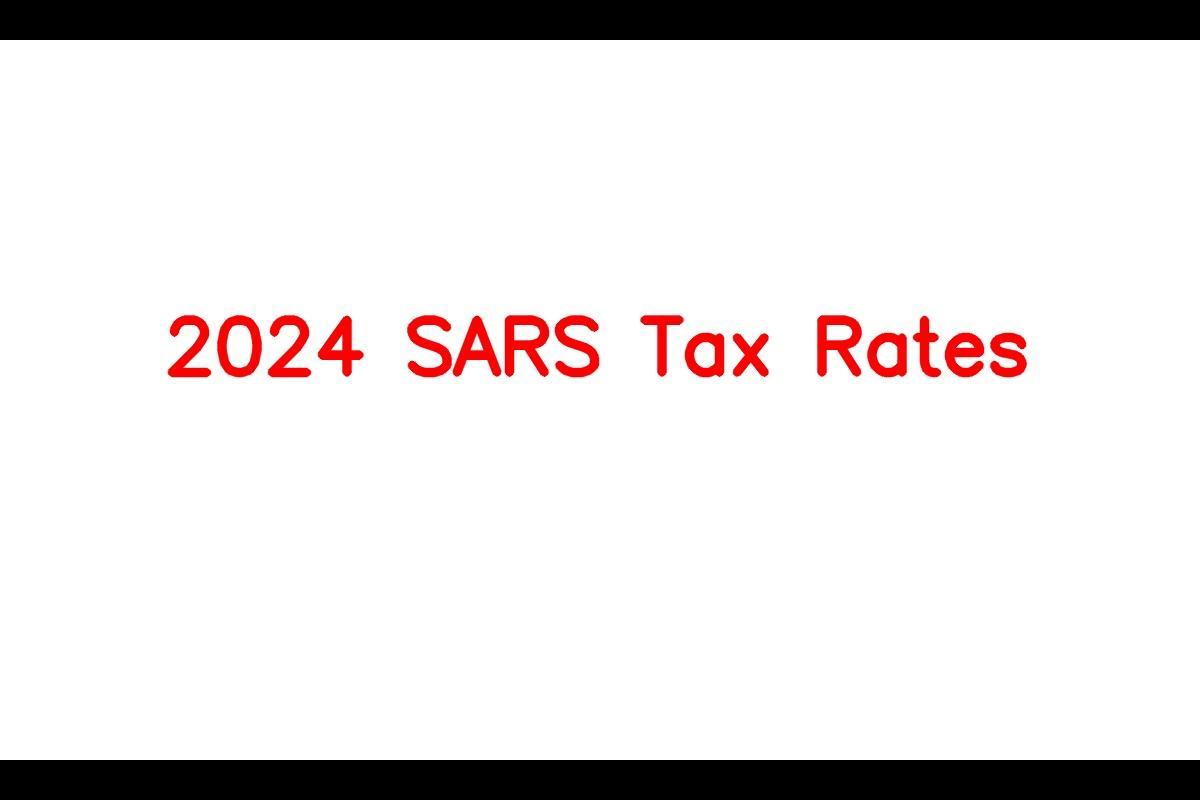News: Individuals living in South Africa are obliged to remit tax on their income to the government. Tax rates determined by the South African Revenue Service (SARS) are based on an individual’s annual income. Examining the SARS tax rates for 2024, the discussion revolves around the potential for increases in these rates.
Understanding SARS tax rates
SARS is responsible for tax collection and compliance with tax regulations. The revenue department makes laws, provides administrative services and protects the economy. Each year, SARS sets different tax rates for taxpayers based on their income and business profits.
The Minister of Finance determines the tax rates, which are announced in the annual budget speech passed in the Parliament. These rates include income tax, employers’ tax, turnover tax, transfer tax and many other tax categories.
What is the tax rate?
A tax rate represents the percentage of an individual’s income that they are required to contribute to the government as income tax. This amount is based on the person’s annual income. Typically, higher incomes correspond to higher tax rates.
These tax rates serve various purposes, including funding national infrastructure and delivering social services to citizens. A person’s taxable income depends on their income level and their respective tax bracket.
SARS tax rates for 2024
SARS applies different tax rates for each financial year between 1 April and 31 March. For the 2023-24 financial year, the following tax brackets and rates will apply.
– Payable income: R1 to R 237,100
Tax Rate: 18%
– Payable income: R 237,101 to R 370,500
Tax rate: 26% with an additional R42,678
– Payable income: R 370,501 to R 512,800
Tax rate: 31% with an additional R 77,362
– Payable income: R 512,801 to R 673,000
Tax rate: 36% with an additional R 121,475
– Payable income: R 673,001 to R 857,900
Tax rate: 39% with an additional R 179,147
– Payable income: R 857,901 to R 1,817,000
Tax rate: 41% with an additional R 251,258
– Payable income: R 1,817,001 and above
Tax rate: 45% with an additional R 644,489
These tax rates follow a progressive structure, whereby individuals with higher incomes are subject to higher tax rates. For example, they are liable to pay 18% of their income up to R237,100 in tax. As income levels increase, the tax rate and additional amount also increases. Individuals earning R1,817,000 and above are required to pay tax at 45% of their income, with an additional R644,489.
Possibility of increase in 2024
The government annually reviews economic indicators such as population growth, SASSA grants, civil servant salaries and other factors to determine potential changes in tax rates. Therefore, tax rate adjustments are expected for 2024.
SARS sets these rates taking into account inflation and the social and economic development of the country. The taxes collected play a vital role in supporting social and economic development activities. The government will notify individuals of the proposed changes for the upcoming fiscal year and announce the revised tax rates before March 31.
SARS tax rates for 2024 are based on individual income and tax bracket. These rates help finance national infrastructure and provide social services. While certain 2024 tax rates are pending announcement, revisions are expected due to various economic conditions. Taxpayers must be updated to ensure compliance with tax laws.
Questions to be asked
Q: Is there an expected increase in SARS tax rates for 2024?
Exact tax rates for 2024 have not been announced. However, taking into account different economic conditions, adjustments in tax rates are expected.
Q: What is the process for establishing SARS tax rates?
SARS tax rates are set by the Minister of Finance and announced in the annual budget speech approved by Parliament. These amounts are determined based on an individual’s income and applicable tax bracket.
Q: What is the rationale behind progressive tax rates?
Progressive tax rates are designed to ensure that high-income individuals contribute a greater share of their income to government revenue. This method is used to finance the national infrastructure and provide social services to the residents by paying a reasonable tax on those who can afford to contribute more.
